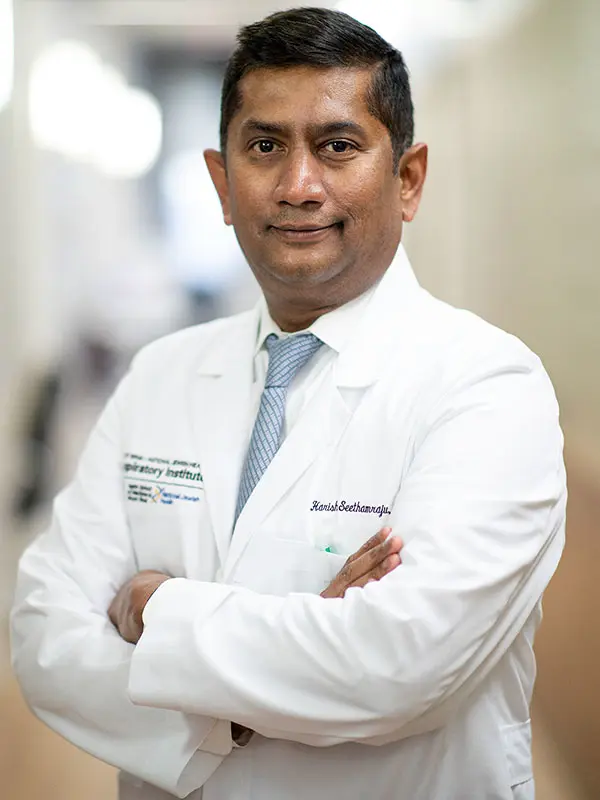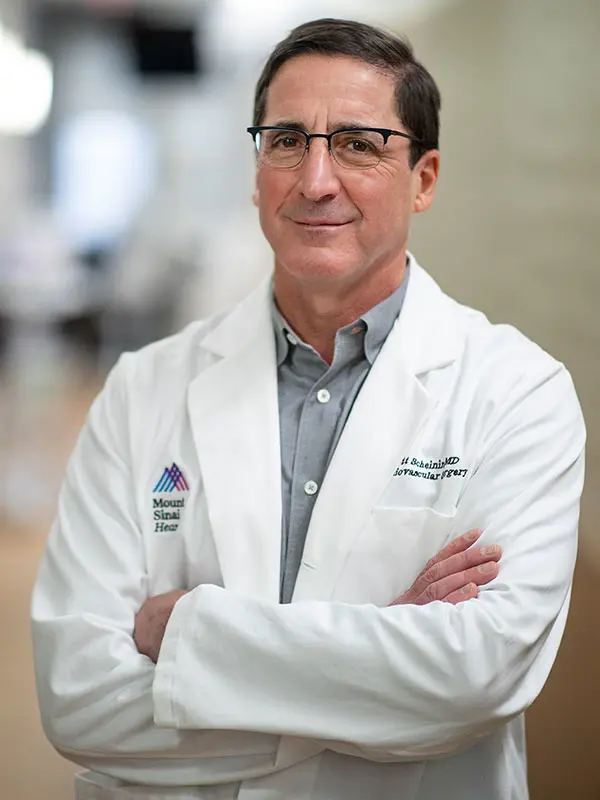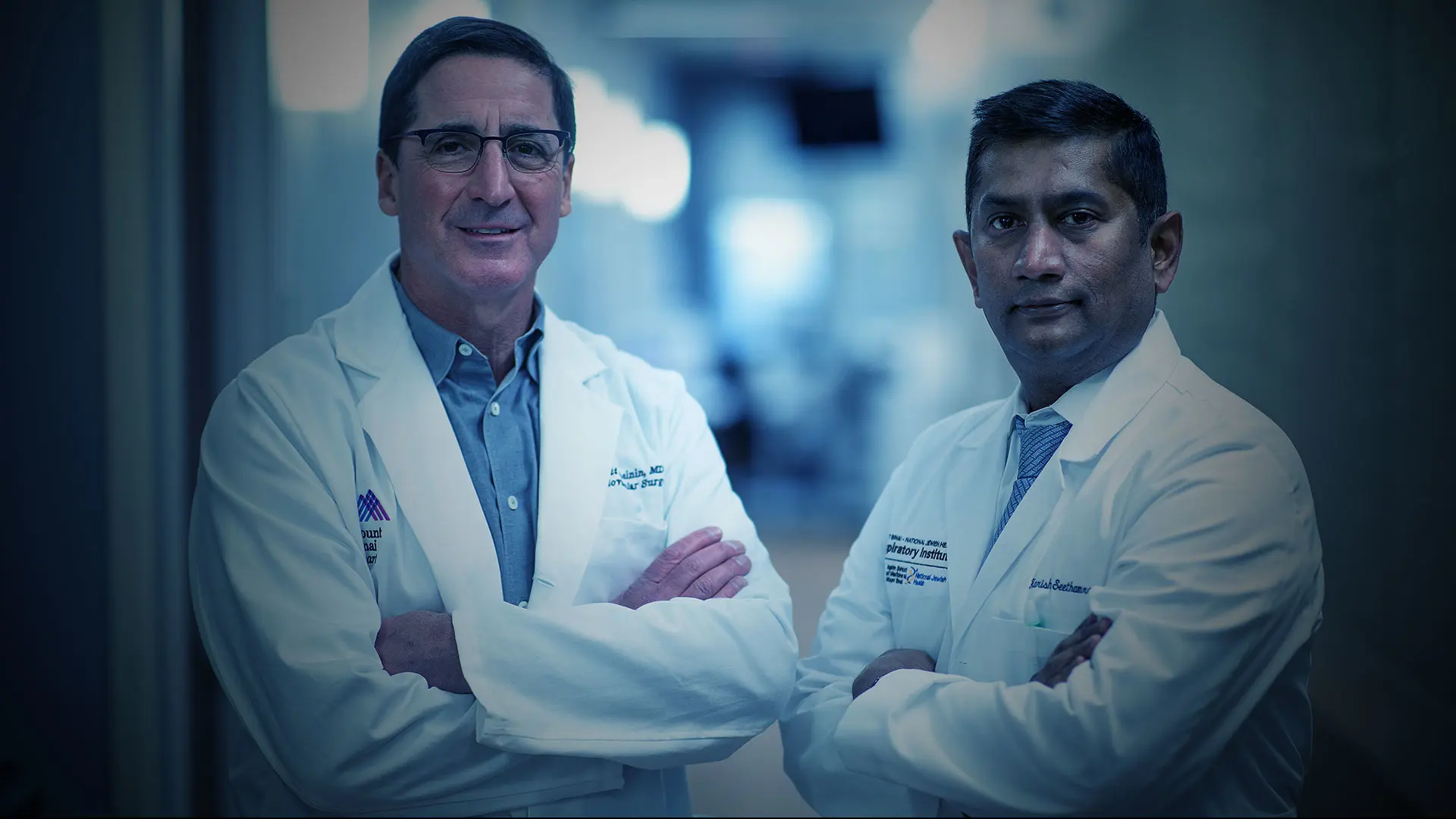As the long-term impacts of the COVID-19 pandemic begin to emerge, one major concern has been the number of patients requiring lung transplantation due to COVID-19-related fibrosis. To care for these patients and those who need transplants for other reasons, Mount Sinai Health System has recruited two world-renowned experts to establish a lung transplantation program that aims to be a leader and innovator in the field.
Launched in May 2021, the program is led by Harish Seethamraju, MD, and Scott Scheinin, MD. Prior to joining Mount Sinai in January 2021, both held senior positions at Montefiore Medical Center in New York. Dr. Seethamraju served as Medical Director of the Lung Transplant Program and Dr. Scheinin served as Surgical Director of the Advanced Pulmonary Failure and Lung Transplantation Program, Division Chief of Thoracic Surgery and Surgical Oncology, and Director of the Bloodless Heart Surgical Program.
"Between the two of us, we have more than three decades of experience in caring for more than 1,000 lung transplantation patients,” says Dr. Scheinin, Senior Faculty in Cardiovascular Surgery, and Thoracic Surgery, Icahn School of Medicine at Mount Sinai, and System Director of the lung transplantation program. “What drew us to Mount Sinai was the quality of the institution, its affiliation with National Jewish Health, and the fact that it had a robust transplant program already in existence—one that we could expand upon by bringing in the lung component.”
The program team consists of Drs. Scheinin and Seethamraju; John Jacob, MD, Assistant Professor of Thoracic Surgery, Icahn Mount Sinai; two care coordinators; and a social worker. Drawing on their combined expertise, the team will care for traditional lung transplantation patients—those with idiopathic pulmonary fibrosis, chronic obstructive pulmonary disease (COPD), primary pulmonary hypertension, and cystic fibrosis—and those who present with highly complex cases that few health systems are equipped to handle. These cases include immune-compromised patients (e.g., patients with human immunodeficiency virus, or HIV, and bone marrow transplant recipients who experience lung failure); multi-organ transplantations—in particular heart-lung and lung-liver; and bloodless lung transplantation. Drs. Scheinin and Seethamraju are particularly well versed in the latter procedure, having performed it some 40 times.
A special focus on HIV-positive and bloodless transplantation
HIV-positive and bloodless transplantations, in particular, set Mount Sinai’s program apart from others, says Dr. Seethamraju, Senior Faculty, Medicine (Pulmonary, Critical Care and Sleep Medicine), and Cardiovascular Surgery, at Icahn Mount Sinai, and Medical Director of the lung transplantation program. In fact, it is the only dedicated bloodless transplantation program nationwide. Dr. Seethamraju adds that the program will further distinguish itself by specializing in lung transplantation for pediatric patients ages 12 and over. This will include dual organ transplants for patients who have complex congenital heart conditions.
“Previously, there was no comprehensive pediatric lung transplant program in the state of New York, which meant patients had to travel to Philadelphia to undergo the procedure,” he says. “Now, we are able to offer that expertise here at Mount Sinai.”
In addition to extensive expertise in complex lung transplantation cases, Drs. Scheinin and Seethamraju have a track record of success in treating patients using alternate modalities. Through the new program, they plan to further explore the potential of alternate approaches, including lung volume reduction surgery among patients who present with emphysema or COPD. Dr. Scheinin says that, in some instances, this surgery is a better option for patients than lung transplantation. “We have ongoing trials looking at surgical lung volume reduction versus bronchoscopic lung reduction,” he notes. “Being part of a multifaceted end-stage lung failure center enables us to offer patients more options.”
The goal now is to expand those options and continue exploring unanswered questions related to lung transplantation. Drs. Scheinin and Seethamraju are developing grant applications, exploring opportunities to collaborate with National Jewish Health on basic science research projects, and enrolling patients for clinical trials related to pulmonary fibrosis. They also plan to introduce surgical and medical transplant fellowship training in the third year of the program. At that point, they expect to be performing approximately 50 transplantations a year—a target that could be within reach given the increase in patients presenting with COVID-19-related fibrosis of the lungs. Dr. Seethamraju is confident that their extensive expertise, which includes using extracorporeal membrane oxygenation to bridge patients to transplant, will not only enable Mount Sinai’s program to care for these patients but also those who present with emerging diseases.
“Having been affiliated with one of the nation’s largest lung transplant programs at Houston Methodist, our goal is to make Mount Sinai a high-quality center of excellence institution for the management of lung failure and lung transplant patients,” he says. “We want to be the front-runners in adopting new therapeutic advancements so we can help establish them as the new standard of practice for treating patients.”
Featured

Harish Seethamraju, MD
Senior Faculty, Medicine (Pulmonary, Critical Care and Sleep Medicine), and Cardiovascular Surgery

Scott Scheinin, MD
Senior Faculty, Cardiovascular Surgery, and Thoracic Surgery
